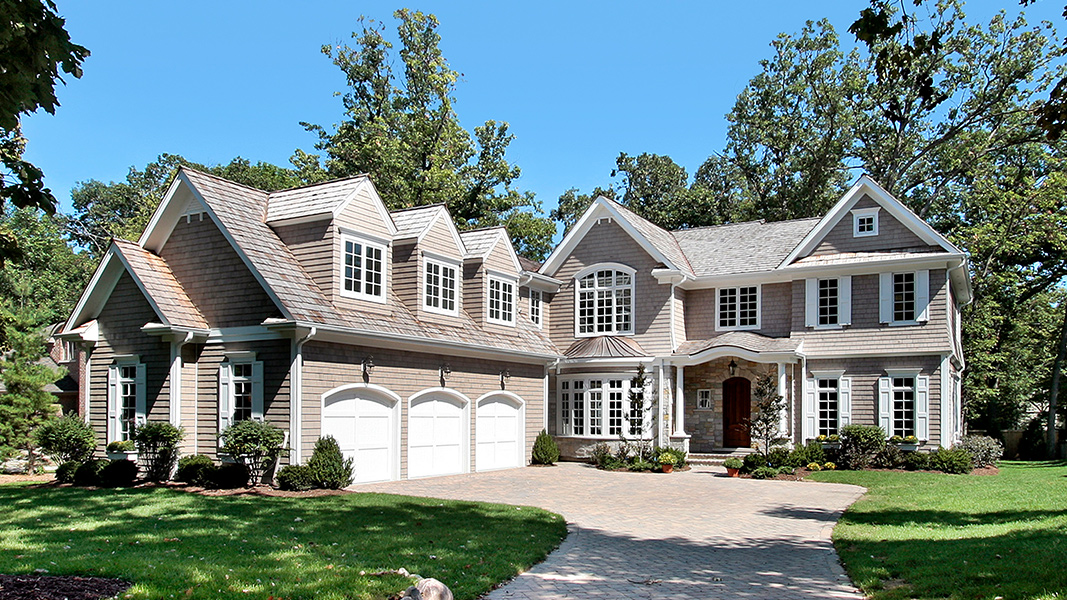In this article
Are you looking to upgrade your living situation for you and your family? Is having access to high end amenities and having more livable space important to you? Well maybe a jumbo loan is the perfect loan for you.
A jumbo loan is a type of mortgage loan that exceeds the maximum loan limits established by the Federal Housing Finance Agency (FHFA). In the United States, these limits are set annually and vary by location. Jumbo loans are designed for the purchase of high-value homes that exceed these limits. Because they are not eligible for purchase by Fannie Mae or Freddie Mac, the two government-sponsored enterprises that buy many conventional mortgages, jumbo loans typically have different underwriting and qualification requirements compared to conforming loans.
Today's Jumbo Mortgage Rates
- 30yr Fixed
- 15yr Fixed

What is a Jumbo loan?
A Jumbo Mortgage is a loan that allows borrowers to buy homes that exceed the conforming loan limit of $806,500. Jumbo loans tend to have stricter lending requirements than other programs but still pack a punch when it comes to upping your buying power. A common misconception about jumbo loans is that you need a 20% down payment in order to qualify. The reality is jumbo financing allows you to purchase a property with as little as 10% down, not the traditional 20%. This is accomplished by establishing a 1st mortgage at the conventional loan limit of $806,500 and 2nd mortgage for the rest of the balance. This “combo loan” avoids mortgage insurance and usually offers the lowest fixed payment.
Why apply for a Jumbo loan?
Applying for a jumbo loan can be beneficial for certain individuals and situations, primarily when they need to finance a high-value home that exceeds the conforming loan limits.
Here are some reasons why someone might need to apply for a jumbo mortgage loan:
High-Value Property Purchase: Jumbo loans are designed for homebuyers who wish to purchase properties with a purchase price that exceeds the conforming loan limits in their area. These limits vary by location but typically are in the $806,500 range. For homes priced above these limits, a jumbo loan is necessary to secure financing.
Expensive Real Estate Markets: In cities and regions with high real estate prices, many homes can easily surpass the conforming loan limits. Jumbo loans enable buyers in these markets to secure financing for their desired properties.
Flexible Financing: Jumbo loans can offer more flexibility in terms of loan amounts and terms compared to conforming loans. Borrowers can tailor their loan to fit their unique financial situation, including choosing from a variety of fixed and adjustable-rate options.
Investment Properties: Investors looking to purchase high-value residential properties for rental income or other investment purposes may require jumbo loans to finance these transactions.
High Creditworthiness: To qualify for a jumbo loan, borrowers typically need a strong credit history, a high credit score, and a stable income. Lenders often have stricter underwriting requirements for jumbo loans due to the higher risk associated with larger loan amounts.
Luxury Homes: Jumbo loans are commonly used to finance luxury homes with premium features and amenities, as these properties tend to have higher price tags.
Competitive Interest Rates: While interest rates for jumbo loans may be slightly higher than those for conforming loans, they are often competitive.
Tax Deductibility: In some cases, the interest on a jumbo mortgage may be tax-deductible, which can provide tax benefits to homeowners.
Money Saving Jumbo Loan Programs
An innovative program designed to give you a little flexibility and breathing room, is the 40-Year Interest Only Jumbo Loan. Enjoy your dream home without overwhelming financial strain. Designed with high-value properties in mind, the no interest jumbo loan was created so borrowers could make interest only payments for the first 10 years before transitioning to principal and interest payments for the remaining 30 years. This way you will pay lower initial monthly payments, making homeownership more accessible for those looking at larger, more expensive properties.
How does a Jumbo loan work?
Qualifying for a Jumbo loan is generally considered tougher compared with many other types of mortgage loans, such as a conventional mortgage. While Jumbo loans offer many advantages, it’s important to understand that there are specific eligibility criteria based on high credit scores, low debt-to-income and availability of liquid assets after down payment.
Who qualifies for a Jumbo loan?
Qualification for a jumbo loan can be more stringent compared to conforming loans, and it may vary by the lender. Here are some general factors that typically apply to those seeking a jumbo loan:
High Credit Score:. A credit score of 700 or higher is typically a minimum requirement
Income and Employment: You’ll need to demonstrate a stable and substantial income to qualify for a jumbo loan. Lenders may require proof of employment and may scrutinize your debt-to-income ratio.
Down Payment: Jumbo loans typically require a larger down payment compared to conventional loans. The exact percentage depends on your qualifications, it’s not uncommon to see down payments of 20% or more. Luckily, 10%-15% down is available by taking advantage of a piggy back 1st and 2nd mortgage.
Reserve Requirements: Liquid cash reserves are required after down payment, often expressed as the number of months’ worth of mortgage payments you should have saved.
Debt-to-Income (DTI) Ratio: Your DTI ratio needs to be at 43% or lower to ensure that your monthly debt obligations, including your mortgage payment, don’t exceed a certain percentage of your income.
It’s important to note that jumbo loans are not guaranteed or backed by government agencies like Fannie Mae or Freddie Mac, so lenders assume more risk. Consequently, borrowers may face more stringent qualification criteria and down payment requirements. To determine your eligibility and explore your options, consult with one of our mortgage advisors to start the process of exploring your options.

Are You Ready to Make a Move?
It's FREE and takes less than a minute to see what you could get.
